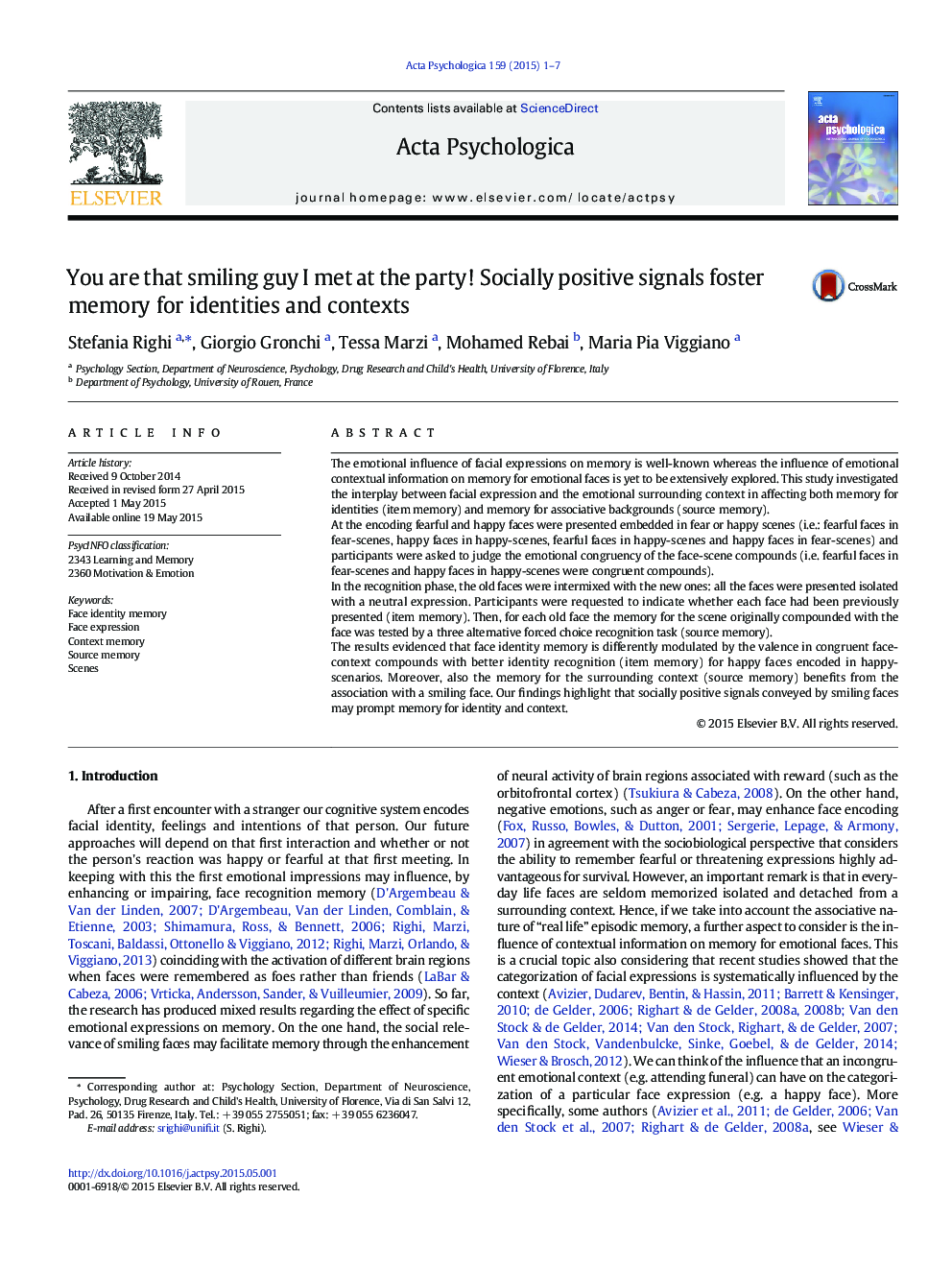| Article ID | Journal | Published Year | Pages | File Type |
|---|---|---|---|---|
| 919708 | Acta Psychologica | 2015 | 7 Pages |
•Fearful and happy expressions differently affect memory for identity and contexts.•Happy expressions and happy-scenarios enhance face identity memory.•Socially positive signals conveyed by smiling faces prompt memory binding.
The emotional influence of facial expressions on memory is well-known whereas the influence of emotional contextual information on memory for emotional faces is yet to be extensively explored. This study investigated the interplay between facial expression and the emotional surrounding context in affecting both memory for identities (item memory) and memory for associative backgrounds (source memory).At the encoding fearful and happy faces were presented embedded in fear or happy scenes (i.e.: fearful faces in fear-scenes, happy faces in happy-scenes, fearful faces in happy-scenes and happy faces in fear-scenes) and participants were asked to judge the emotional congruency of the face-scene compounds (i.e. fearful faces in fear-scenes and happy faces in happy-scenes were congruent compounds).In the recognition phase, the old faces were intermixed with the new ones: all the faces were presented isolated with a neutral expression. Participants were requested to indicate whether each face had been previously presented (item memory). Then, for each old face the memory for the scene originally compounded with the face was tested by a three alternative forced choice recognition task (source memory).The results evidenced that face identity memory is differently modulated by the valence in congruent face-context compounds with better identity recognition (item memory) for happy faces encoded in happy-scenarios. Moreover, also the memory for the surrounding context (source memory) benefits from the association with a smiling face. Our findings highlight that socially positive signals conveyed by smiling faces may prompt memory for identity and context.
